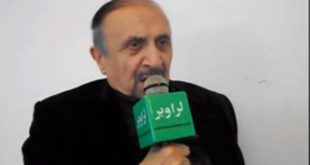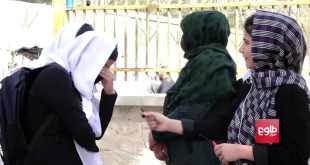I.
After the killing of Burhanuddin Rabbani, Afghanistan’s Intelligence Agency claimed it had handed over to Pakistan evidence that the Taliban leadership had plotted the assassination on Pakistani soil and that the Pakistan Inter-Services Intelligence (ISI) had a role in the killing.
“Without any doubt, ISI was involved,” Afghanistan’s Interior Minister Bismillah Mohammadi was reported as telling Parliament.
But Pakistan’s Foreign Office rejected the charge of ISI involvement in the assassination of the former Afghan president and the Chairman of the Afghan High Peace Council.
So why is Pakistan denying the evidence that terrorist threats are coming from its side of the border? How does Pakistan view Afghanistan? What does Pakistan think about the western world, in particular the United States of America? We will try to provide answer to all those and more in this article.
In 1979, after the Soviet occupation of Afghanistan, the United States and the Pakistan military ruler General Ziaul Haq agreed to establish a complicated Jihadist network, composed primarily of Afghan resistors and assisted by extremists from all over the Muslim world. General Zia clearly said to the United States that all money, equipment, and training of Afghan refugees and of Afghan and International mujahidin should go through the Pakistan channel, notably through the notorious intelligence agency, ISI. Even the CIA was banned from meeting with Afghan resistance leaders in private; if this was to happen, a Pakistani intelligence officer had to be present in the meeting. General Zia saw the Soviet occupation an opportunity for his country’s economic, political, social and military development. On the other hand, the US was eager to take their Vietnam revenge from USSR, and what Pakistan proposed to the US had no negative response.
The Soviet occupation also saw billions of dollars from the United States, allied countries in Europe, Australia, oil-rich Islamic nations, Japan, and Communist China, pour into Afghanistan through the Pakistan channel. Five percent of this aid was given to Afghan Mujahiden and refugees, and the rest was taken by Pakistanis.
At this point, Pakistan thought to expand their regional strategy, and Afghanistan provided both strategical and human resources. After the Soviet withdrawal from Afghanistan, Pakistan sabotaged the Afghan interim government – formed in Pakistan – by creating civil war in Afghanistan and later creating Taliban to conquer Afghanistan and assist Pakistan in their regional strategy of expansion, particularly in Kashmir.
Meanwhile, Pakistan developed their ties with Islamic extremist movements all over the world. Extremist from Africa, the Middle East, and Central Asia came to Pakistan to fight against the Soviet Union in Afghanistan. After the collapsing of the Soviet Union, more Islamic movements were created in Central Asia, and more militants poured into Pakistan. They were welcomed by the authorities and accommodated on both sides of the Durran Line in Pakistan and Afghanistan, in Kashmir and Panjab. The most well-known among those fighters were Usama Bin Laden, Ayman al-Zawahiri, Juma Namangani and Abdullah Azzam.
Usama Bin Laden left the region for Sudan after the communist government of Afghanistan collapsed. He soon returned to Afghanistan in 1996 after US pressure on the Sudan government.
Following attacks on its embassies in Kenya and Tanzania, the US launched strikes on Al-Qaida training camps in Afghanistan, killing several Al-Qaida members and ISI officers who were training Kashmiri militants in the Al-Qaida training camps.
Some Pakistani officials claimed Afghanistan as their fifth province. Indeed, in mid-2006, Afghan President Hamid Karzai told tribal elders in Kandahar that the international community had handed Afghanistan over to Pakistan as a deposit. Pakistan believed that Afghanistan was theirs.
II.
A friend of mine who is the manager of construction company in Afghanistan had a contract with the Taliban government in Afghanistan. He imported asphalt from Iran to Afghanistan for the Kabul-Kandahar highway.
“After the 9/11 attacks, the government offices in Kabul all closed because of fear of US attacks,” he said. “The only office was open by the time was Mullah Omar office in Kandahar for diplomatic purposes. I brought my application for payment to the Mulla Omar office, and when I reached the main gate, Tayyab Agha, an aide came out from the office with a senior ISI delegation that had meetings with Taliban senior leaders. I asked what the ISI people were saying. They had said that the Americans were cowards and would never attack, and if they did, they will be defeat and Afghanistan will be liberated.”
After one week of the death of Usama Bin Laden by US Special Forces in Abbotabad Pakistan, I had meet Mahmood Khan Achakzai in his house Quetta Pakistan to present him my newly prented book on (Ghafar Khan or the Frontier Ghandhi). I told him the story of Tayyab Agha and what the ISI delegation had said. He confirmed it, saying that the head of the delegation was Lieutenant General Mahmood, Chief of the ISI.
I believe these Pakistani officials do not know the history of superpowers, especially that of the United States. Three thousand people were killed in New York and Washington, but they make joke of it. After 9/11, the whole world cut ties with the Taliban government. Instead of cutting its ties, however, Pakistan doubled its support of the Taliban government. An extensive recruitment and financing campaign was launched inside and outside Pakistan, which doubled its intelligence presence in Afghanistan, focusing mostly on the northern part of the country.
While northern Afghanistan had been taken by alliance militias and the Taliban had surrendered in Kunduz province, hundreds Pakistani intelligence officers were among them. Pakistan, through a deal with the United States, send its military plans to Kunduz to pick up those officers who were stuck there but Pakistan ignor the agreement and included some of important Taliban commanders such as Mullah Dadullah, who was later killed by the NATO forces in Helmand in 2007.
After the collapse of the Taliban government, the international terrorists and members of the Taliban were invited by the ISI to Pakistan. They were accommodated in the large cities of Lahore, Karachi, and Pendai under the watch of the ISI. Usama bin Laden was kept at a military base.
Afrab syab Khatak told a gathering in Kabul that some of the important politicians were invited by ISI officers for advice in 2003 to Islam Abadand I was in that group. The intelligence guys had asked us for advice to deal with the challenges that Pakistan is face especially the presence of Al-Qaida members in Pakistan. “Keeping them in Pakistan will cost the same price as Taliban, he said.”
In 2006 Pakistan’s Military ruler, General Musharaf, told the European Union Parliament that the Pashtons were the real problems of the region. But in 2000, he said he was happy Pashtons were ruling Afghanistan.
That Pashtons were ruling Afghanistan was not new – they have ruled Afghanistan for more than five thousand years. In real terms, he was happy that his puppet Pashtons were ruling Afghanistan. Now President Karzai is also a Pashton and from the same province of Mullah Omar, so why was he no longer happy?
Although he was not happy, his support of militants in Afghanistan led to more that a hundred thousand Afghanistan Security forces and civilian deaths since 9/11. More than 200 Al-Qaida members that had been captured and killed in Pakistan were all in non-Pashton areas, including Usama Bin Laden and his right-hand man, Libyan Abu Faraj al-Libbi, as well as Al-Qaeda’s number three, Younis al-Mauritani and many more.
What has become clear now is that the problem is not the scapegoat Pashtons. If Pashtons are the problem, who then killed the more than five thousand Pashtons tribal elders on both sides of the Durran line? More than a hundred thousand Pashtons have been killed in Afghanistan and Pakistan, and in Pakistan alone, more than two million have been displaced because of war.
III.
In August 2007, Mahmood Khan Achazai made a historical speech in Kabul to the members of the Afghanistan-Pakistan joint Peace Jirga.
He said, “I told Parliament that the United States is claiming that Pakistan had sold nuclear technology and provided sanctuary to Usama bin Laden. Pakistan is the mastermind of international terrorism and is supporting the insurgents in Afghanistan against coalition and Afghan forces. Pakistan has to give a responsible answer to those allegations by the United States. You can solve the problems; if you do not, this whole region will burn in fire.”
After the death of Usama bin Laden, I asked Mahommod Khan Achakzai how he knew that Usama bin Laden was in Pakistan. “If he were not in Pakistan, where else would he be?” he replied.
General Mohammad, a Deputy Commander in the Afghanistan National Army, spoke to me once about a tripartate meeting he attended that brought Aghanistan, NATO and Pakistan security forces to the table to discuss security issues and share intelligence.
“We had a meeting in mid-2007 in Pakistan. Afghanistan border security forces had raised the question of Pakistan sending insurgents into Afghanistan but the Pakistani security officers denied it. Then our border Police officers showed them a video of an insurgents convoy in pick-up trucks crossing the border and attacking one police checkpoint,” he accounted.
“After the attack, the border police traced their vehicles track into Pakistan soil. As the meetings wrapped up, a NATO general said to me: I turn to the Pakistanis officers and told them the fire you have blaze in Afghanistan will burn one day in Pakistan.”
I think this is now the nature of the Pakistani Army and intelligence officers denied all the truth, going so far as to say the death of Usama Bin Laden is a conspiracy theory against Pakistan.
The United States and Pakistan relation is now the worst it has ever been. Moreover, Pakistan has never before faced such poor economic and security issues, let alone such intense international pressure. Now Pakistan has two choices: it can stop supporting international terrorism, guarantee their nuclear weapons are safe, help in the Afghanistan peace process, transfer all power to a civilian, democratic government; or it can fail to do the above and allow the country to burn, with the ISI facing the same result as the KGB did in the Soviet Union.
Ghulam Wali Noori, former historian for the President of the Islamic Republic of Afghanistan; Mr. Hamid Karzai.
 لراوبر ویب پاڼه لراوبر يو افغان – تازه خبرونه
لراوبر ویب پاڼه لراوبر يو افغان – تازه خبرونه


